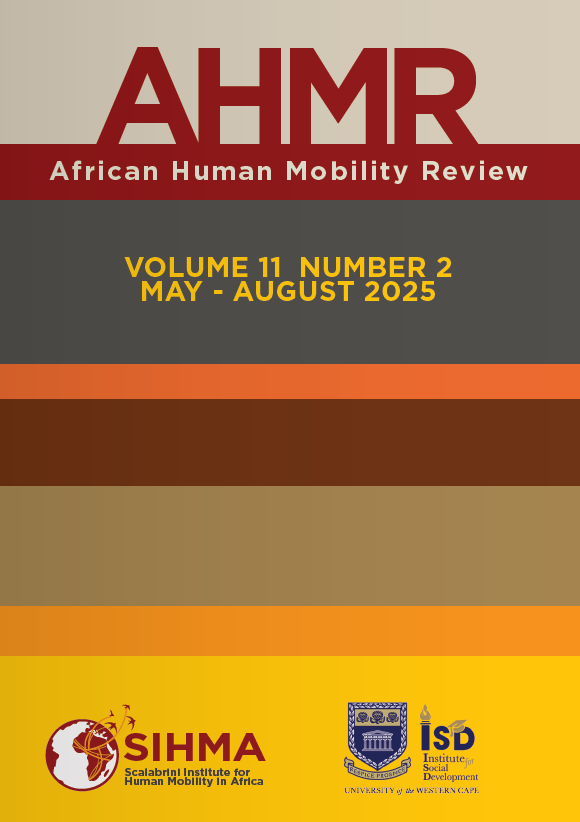Cross-Border Solidarity: Migrant-Led Associations as Spaces of Epistemic Resistance and Food Security Innovation in South Africa
Main Article Content
Abstract
In the midst of closure and securitization of border regimes, climate-change displacement, and entrenched inequalities, migrant communities are not just surviving but creating new sites of resistance, creativity, and adaptation to their worlds in crisis. This paper explores how migrant-solidarity organizations function as epistemic spaces of invention and resistance in South Africa among Zimbabwean, Pakistani, and Cameroonian migrant communities in Parow Valley, Summer Greens, and Kensington (Cape Town). Based on 250 household surveys and 12 qualitative in-depth interviews, the paper explores how migrant-led social movements become sites of agency, social resilience, and resistance to marginalization habitually employed by state policy and academic scholarship. These forms of solidarity networks, which are essentially national in scope, maintain food security at a household level, access to livelihood, and socioemotional well-being. Group savings, mutual support, and rotating credit associations enable these networks to build adaptive capacities to deal with uncertain migration status and socio-economic risk. They constitute resilient, informal social safety nets for food, income, and affective resources that go beyond what formal mechanisms can provide. By situating migrant practice and epistemologies, the paper challenges hegemonic discourses that position migrants as passive. Instead, it positions everyday solidarities at the site of politicized invention and resistance. It situates where these practices intersect with Sustainable Development Goal (SDG) 2 (zero hunger), SDG 8 (decent work), and SDG 10 (reduced inequalities). It establishes a decolonial, plural migration knowledge positioning migrants as co-producers, policy entrepreneurs, and change agents.
Metrics
Article Details

This work is licensed under a Creative Commons Attribution 4.0 International License.
Articles and reviews in AHMR reflect the opinions of the contributors. AHMR allows the author/s to retain full copyright in their articles. This is an open access journal which means that all content is freely available without charge to the user or his/her institution. Articles are made available under a Creative Commons license (CC-BY-4.0). Authors who have published under a CC BY 4.0 licence may share and distribute their article on commercial and non-commercial websites and repositories of their choice. Users are allowed to read, download, copy, distribute, print, search, or link to the full texts of the articles, or use them for any other lawful purpose, without asking prior permission from the publisher or the author/s provided the author/s is correctly attributed. This is in accordance with the BOAI definition of open access.




